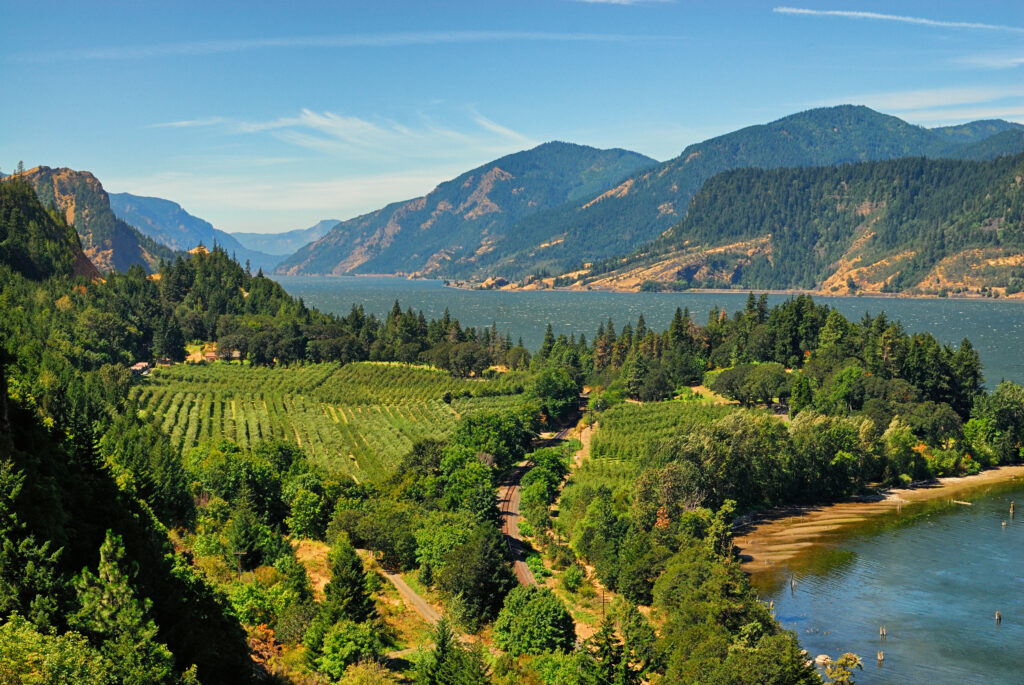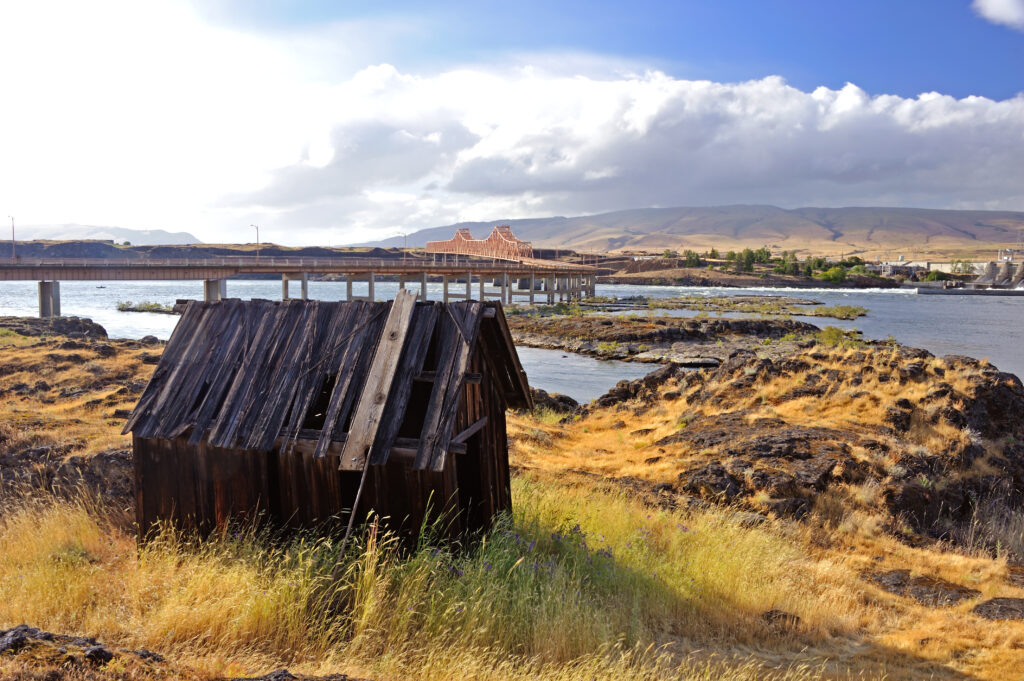
____
This year, the High Desert Museum proudly debuts the Schnitzer Prize of the West to celebrate visionary leaders whose work is shaping our shared future.
The Prize of honors extraordinary individuals—or a small group of individuals—whose efforts combine collaboration, innovation, and social impact to address the region’s enduring challenges, from water scarcity and allocation, tribal rights and sovereignty, land use and conservation, to wildfire and climate adaptation, ecological change, and the dynamics of human communities, migration, and identity.
Endeavors that enhance conservation and community resilience do not happen in isolation—it depends on cultivating relationships between people and place. Rather than focusing on a single issue, industry, or discipline, the Prize recognizes work that drives measurable, systemic impact and provides replicable models for other regions facing similar challenges.
Awarded annually in partnership with Jordan D. Schnitzer and the Harold & Arlene Schnitzer CARE Foundation, the Prize includes a $50,000 cash award and a unique art piece, which will be presented to the winner at the inaugural ceremony in Portland and reception in Bend, Oregon, in the spring of 2026.
The open call for self- and third-party nominations closed on January 30, 2026.
____
Schnitzer Prize of the West:
$50,000 cash prize and a unique art piece
____
Nomination Criteria
The Schnitzer Prize of the West is awarded annually to an individual or a small group of individuals who have made a significant contribution to the future of the American West, with emphasis on exceptional innovation, social impact, and the formation of uncommon collaborations.
Nominees are expected to demonstrate work that:
- Has made significant steps toward solving one or more Legacy Issues in the American West, and/ or addressing these issues in a significant way.
- Showcase exceptional innovation and scalable impact in applied practice, scholarship, or policy.
- Build relationships and form essential, uncommon collaborations, finding common ground between competing forces, organizations, agencies, and groups.
Additional Considerations:
- Integration of diverse perspectives in conservation practice, policy and/or applied scholarship.
- Evidence of system-level impact that can be replicated in other regions facing similar challenges.
- Demonstrated leadership beyond their employer or individual community.
- Recognition and respect from peers, colleagues, and collaborators.
For more information, please refer to the FAQs.
Selection Process
 The selection process starts by submitting a nomination by January 30, 2026. Ensure that the individual(s) you wish to nominate meet the current eligibility criteria. Nominees are then reviewed by a subcommittee of members comprised of the High Desert Museum and the Advisory Committee.
The selection process starts by submitting a nomination by January 30, 2026. Ensure that the individual(s) you wish to nominate meet the current eligibility criteria. Nominees are then reviewed by a subcommittee of members comprised of the High Desert Museum and the Advisory Committee.
 Select nominators will receive an invitation to share more information about their nominee, including references, additional project examples, and relevant materials to further inform the Advisory Committee’s review.
Select nominators will receive an invitation to share more information about their nominee, including references, additional project examples, and relevant materials to further inform the Advisory Committee’s review.
 A small number of nominees will be invited to participate in an interview with members of the Advisory Committee. Final selection of the Prize winner will be announced in the spring of 2026.
A small number of nominees will be invited to participate in an interview with members of the Advisory Committee. Final selection of the Prize winner will be announced in the spring of 2026.
Meet the Advisory Committee
The core purpose of the Advisory Committee is to provide expertise and guidance to shape the Prize program. This body also supports nomination solicitations and will ultimately select the Prize recipient.
Advisors are selected not only for their expertise and outstanding leadership but also for their various perspectives and lived experiences across multiple intersections, as well as a track record of working collaboratively on legacy issues in the West, as embodied by this Prize.

JORDAN D. SCHNITZER
President and CEO
Schnitzer Properties
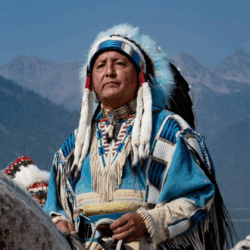
DON SAMPSON
Former Executive Director
Confederated Tribes of the Umatilla Indian Reservation

ZEPHYR FRANK, PH.D.
Director
Bill Lane Center for the American West
Stanford University
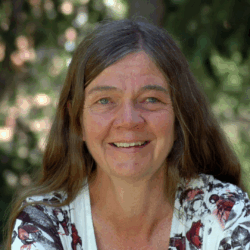
PATTY LIMERICK, PH.D.
Founder
Center of the American West
Director of the Applied History Initiative
University of Colorado Boulder

PAISLEY REKDAL, MFA
Director of the American West Center
University of Utah
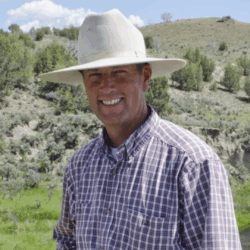
JON GRIGGS
Cattleman and Conservationist
Ranch Manager
Maggie Creek Ranch

CARLY (LETTERO) SOLSTRÖM
Director, Spring Creek Project
Director of Arts, Science, Humanities and Technology Integration, PRAx
Oregon State University
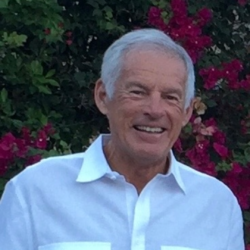
JOHN L. BLACKWELL
Director Emeritus
World Forestry Center
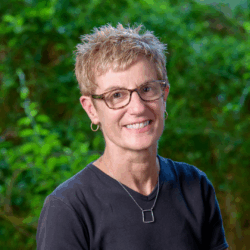
SHARON COLLINGE, PH.D.
Director, Arizona Institute for Resilience
University of Arizona
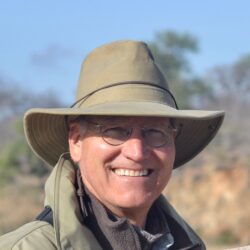
BENJAMIN F. CARTER
Owner
Benden Farms

MICHAEL HOLLERN
Chairman
Brooks Resources Corporation
![Dana+headshot[1]+1080x1080-602371243 Dana+headshot[1]+1080x1080-602371243](https://highdesertmuseum.org/wp-content/uploads/2025/10/Danaheadshot11080x1080-602371243-250x250.jpg)
DANA WHITELAW, PH.D.
Executive Director
High Desert Museum
Continuing a Legacy: Earle A. Chiles Award
(1984-2015)
The Schnitzer Prize of the West is built upon a long history of recognizing innovative and collaborative work across the High Desert. From 1984-2015, the Earle A. Chiles Award was presented annually by the High Desert Museum in recognition of significant contributions in promoting the thoughtful management of the High Desert region’s natural resources or for the resolution of conflicts involving these resources. Nominations were accepted in a wide array of fields, including biology, history, land management, citizen action, law, art, literature, and media.
With the passing of American businessman and philanthropist Earle M. Chiles (the son of Earle A. Chiles), the Chiles Awards were paused in 2016, and these contributions remain memorialized as a part of the High Desert Museum’s public collection.
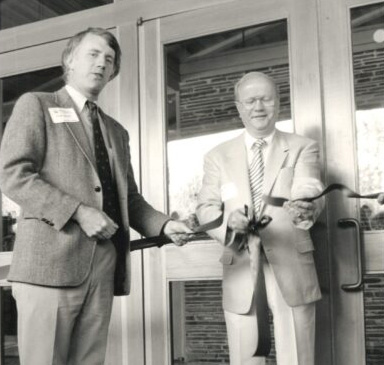
Jordan Schnitzer and the Harold & Arlene Schnitzer CARE Foundation

Jordan D. Schnitzer, the visionary sponsor of the Schnitzer Prize of the West, is a prominent West Coast businessman with a vibrant legacy of supporting the High Desert Museum. He is President and CEO of Schnitzer Properties, one of the West Coast’s Top 10 private real estate owners with offices in six Western states.
Through the Harold & Arlene Schnitzer CARE Foundation, Schnitzer carries on the legacy of his late parents and their belief that “to whom much is given, much is expected.” Headquartered in Portland, Oregon, the CARE Foundation and its leaders have given over $300 million to fund hundreds of nonprofit projects that touch lives and enrich communities.
Schnitzer is also a noted supporter of the visual arts and one of ARTnews’ Top 200Collectors, recognized for sharing his extensive art collections with museums and institutions at no charge, while supporting accompanying programming, educational opportunities, and publications.
Schnitzer Prize of the West FAQ
As the American West navigates the urgent and lasting impacts of a changing climate and economy, it is essential to celebrate the stories of the innovative and collaborative individuals shaping its future.
Our vision is for the Schnitzer Prize to serve as a “Nobel Prize” for the American West. In its inaugural year, we are relying on the guidance and expertise of our Advisory Committee to shape this ambitious vision.
Potential topics range from conservation, ranching, farming, water allocation, fisheries, forestry, Indigenous sovereignty, sustainability, history, art, policy, and more. Learn more about the focus issues of the Prize.
We define the American West as the geographical and biocultural area west of the 100th Meridian. There is – and has been for many years – important work being done by many to reimagine the definition of the American West. See the statement from Bill Lane Center for the American West titled “What is the West?” for more.
Prize laureates will be recognized at a Prize ceremony and receive a significant cash gift and a contemporary artwork selected by Jordan Schnitzer. Their story will be celebrated through a multimedia campaign with national reach.
Any individual or a small group of individuals who have worked to deliver a significant, innovative, and collaborative solution towards solving a legacy issue in the American West may be nominated for the Prize of the West.
Additional factors that will be considered in the review of nominations include:
- How various parties, non-profits, public agencies, farmers/ranchers, artists, environmentalists, etc., are integrated together;
- How an indigenous voice and a historical perspective are integrated;
- How legacy issues are addressed beyond partisan politics;
- How art and creativity are blended with the sciences, including natural and/or social sciences.
Possible examples of a “Small group of individuals” include a research group at a university, a collaborative project team spanning multiple organizations, or the leadership team of a non-profit. These individuals are eligible to win the Prize, rather than the organization as a whole.
Examples of work for which the Schnitzer Prize of the West is not to be awarded include:
- Organizations or agencies
- Individuals who use litigation as a primary work function
- For organizing large meetings, summits, or conferences
- Individuals whose work primarily affects regions outside of the American West
- Posthumous individuals
Yes, the Prize is designed to celebrate an individual or a small group of individuals, regardless of their employment status. For example, many civil servants at public agencies lead innovative and collaborative work, and therefore are eligible nominees for the Prize.
A small number of individuals (2-5+) who are part of a team or work group, sharing responsibility for a specific project, jointly catalyzed a significant change in business-as-usual practice and thinking, etc. The Prize would be shared between the winning individuals.
Yes. Please read through the nomination eligibility criteria and requested materials before applying. You can submit a nomination through January 30, 2026.
Details of the call for nominations will be announced on our website and through our social media channels. Please keep an eye out for announcements.
No. While it is important to remember the stories of those who came before us, the Prize of the West is not awarded posthumously.
Yes. We welcome you to submit multiple nominations.
Our goal is to make the initial nomination process simple and a small time investment for nominators. We request contact information and a brief description of your nominee, including project examples, as well as a space to share relevant URL links for additional information. You will be asked to create an account via Submittable to save and submit your nomination form.
No, not by the Schnitzer Prize of the West. However, a log of the nominee’s name and year nominated will be collected and considered for three award cycles.
The Advisory Committee is comprised of a small group of individuals from across the American West—Indigenous leaders, farmers, conservationists, researchers, landowners, policymakers, authors, historians, etc. This independent jury represents various regions, disciplines, and lived experiences to provide diverse guidance. Prize laureates are invited to join the Advisory Committee following their award, to give back to the Prize and support the nomination and selection of future Prize winners. View current Advisory Committee Members here.
The Advisory Committee undergoes a thoughtful and meticulous review of all complete applications each year to decide and select the Prize winner.
The chosen nominee(s) will be notified of their award by a representative of the Schnitzer Prize of the West Advisory Committee. This typically occurs early in the calendar year. There will be a Prize ceremony, which will take place in the spring of each year in Portland, Oregon.
The Prize money would be awarded as individual income.
-
Receive all of the Prize money.
-
Designate one or more charitable (no more than 4 total) institutions appropriately qualified by the US Internal Revenue Service to receive the money.
-
A combination of the above.
Yes. Complete nominations are considered for up to three award cycles. An individual can only be awarded the Schnitzer Prize of the West once in a lifetime.
QUESTIONS?
CONTACT
Matt Muchna
Schnitzer Prize of the West Director
High Desert Museum in Bend, Oregon
prize@highdesertmuseum.org; 541-382-4754 Ext. 370


